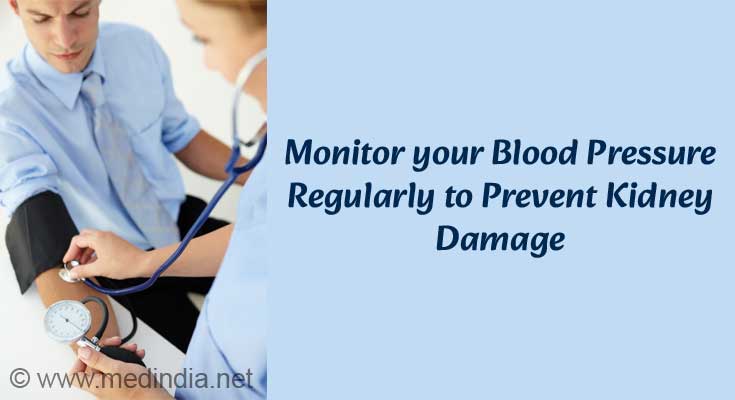Hypertension can lead to kidney damage, making early detection and management essential for preventing chronic kidney disease.
- Hypertension triggers early damage to kidney podocytes, even without diabetes
- Early detection of hypertension can prevent chronic kidney disease
- Controlling blood pressure is key to protecting kidney health
Association of Podometrics Findings in Patients With Hypertension and Type 2 Diabetes: A Retrospective Analysis
Go to source).
Hypertension alone can damage kidneys even before symptoms appear! #hypertensionawareness #kidneyhealth #medindia’
Study Reveals Early Structural Changes in Kidneys
The research team analyzed kidney tissue samples from 99 patients—some with hypertension, others with both hypertension and type 2 diabetes, and a control group with neither condition. The samples were taken from unaffected renal tissue samples of tumour nephrectomies (surgical kidney removal for tumour treatment) performed between 2013 and 2018.Using AI-powered image analysis, the team measured the size and density of podocytes and the volume of glomeruli (the kidney's filtering units). The findings showed that:
- Patients with hypertension had fewer podocytes compared to healthy individuals.
- Their podocyte cell nuclei were enlarged, signaling cell stress and potential dysfunction.
- These changes were evident even without diabetes, indicating that high blood pressure alone triggers early kidney damage.
What Are Podocytes and Why Are They Important?
Podocytes are vital cells in the kidney’s glomeruli, where blood filtration occurs. They act as a barrier, preventing proteins and other essential substances from leaking into the urine. When podocyte density decreases, the kidney’s filtration capacity weakens, raising the risk of proteinuria (protein in the urine) and progressing towards CKD.Early Detection and Treatment Is Key
The study highlights the importance of early hypertension management to prevent kidney complications. According to lead authors Christopher Paschen and Rainer Oberbauer, early intervention can help slow the progression of kidney disease and reduce the risk of long-term complications.Why Should You Care About Hypertension-Related Kidney Changes?
Even if you don’t have diabetes, untreated high blood pressure can silently damage your kidneys. Since this structural damage occurs before clinical symptoms appear, regular blood pressure monitoring and early intervention are essential.Tips to Protect Kidney Health With Hypertension
If you have high blood pressure, consider these strategies to protect your kidneys:- Control blood pressure: Aim for a target of below 130/80 mmHg, as recommended for patients at risk of kidney disease.
- Adopt a kidney-friendly diet: Reduce sodium, increase potassium intake, and consume lean proteins and whole grains.
- Stay hydrated: Drink plenty of water to support kidney function.
- Regular check-ups: Ask your doctor for kidney function tests if you have hypertension.

Take proactive steps to control your blood pressure and protect your kidneys from silent damage!
Reference:
- Association of Podometrics Findings in Patients With Hypertension and Type 2 Diabetes: A Retrospective Analysis - (https://www.ahajournals.org/doi/10.1161/HYPERTENSIONAHA.124.24379)
Source-Medindia
















